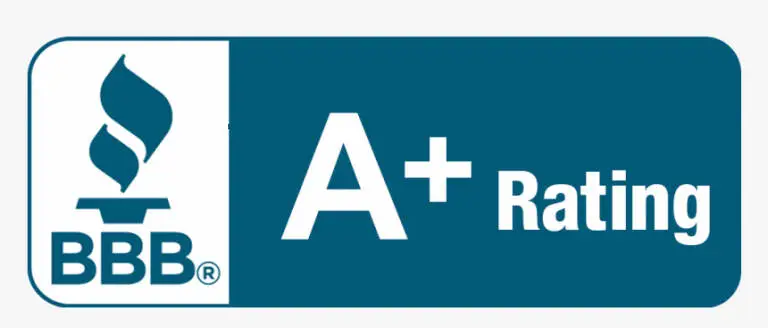Blog
Building a Legacy: Estate Planning and Protecting Your Nashville Real Estate Assets
Lee Blackburn

It’s never too early to begin thinking about what you’ll leave behind for future generations, either in your own family or among the people and institutions you love. If you’re fortunate enough to build any kind of wealth during your lifetime, you have to be strategic about what happens to that wealth once you leave this earth.
Estate planning is essential, especially for real estate investors who may have Nashville real estate assets to divide up among heirs, beneficiaries, and interested parties.
Things can get messy if you’re not clear. They can also get expensive. The best way to avoid all of that is by planning ahead of time and protecting your investments.
We aren’t financial planners or tax experts, but we are experienced Nashville property managers and real estate experts. We can tell you what estate planning means for your property assets and your peace of mind.
Most of the Nashville real estate investors we work with are interested in more than simply accumulating properties. They want to build their legacy and leave something behind. Let’s explore the steps that can get you there.
Why Estate Planning Matters to Nashville Real Estate Investors
Estate planning is the process of arranging for the management and distribution of your assets after your death. While it may seem like a task for the wealthy, every property owner, including Nashville’s real estate investors, should have a plan in place. Here are a few reasons why it’s so important, whether you’re leaving behind a single property or an entire portfolio:
- Estate Planning is About Avoiding Probate
Without a proper estate plan, your assets must go through probate, a public legal process that can be time-consuming and costly. Estate planning allows you to bypass this process, ensuring a smoother transition of your properties to your heirs. No one likes paperwork, waiting, or extra expenses. When you’re gone, having a solid estate plan in place will spare your beneficiaries and family members from having to endure the lengthy probate process.
- Estate Planning Leads to Minimizing Taxes
With strategic planning, you can significantly reduce the amount of estate tax your beneficiaries will need to pay, leaving them with more of your hard-earned assets. Talk to your tax expert, whether it’s an attorney or a CPA. There are several things that have to be done now in order to protect your assets from excessive tax penalties later.
- Estate Planning with Protect Your Heirs
Proper estate planning can safeguard your loved ones from potential disputes over your properties, ensuring they inherit exactly what you intend. You don’t want to leave everything in a state of chaos, and you don’t want any confusion to lead to stormy battles or conflict among your family members. Don’t give them a reason to fight with each other. Be specific about who is getting what after you have passed.
These are the advantages to having an estate plan in place. If you think it might be too soon – it’s not. Next, we’re going to share some of the steps you’ll want to take in getting yourself started and securing your legacy.
Key Steps in Estate Planning for Nashville Real Estate Investors
Don’t feel overwhelmed. As long as you’re surrounded by qualified experts, building an estate plan is not a terribly complex process. Here are the steps that will get you started:
1. Create a Comprehensive Will
You don’t even need to have real estate assets in order to put a will together. It’s a sensible step for anyone to take. Your will is the foundation of your estate plan. It should clearly outline how you want your real estate assets distributed after your death. Be specific about each property’s beneficiary to avoid confusion and potential disputes. Don’t be vague and reference your rental properties. Make sure the will holds space for each unique property.
2. Consider a Living Trust
It should never end with a will. You’ll want to talk to your estate planning expert about the value of a living trust as well. This can be beneficial because the living trust allows you to retain control over your assets while you’re alive and ensures a seamless transfer of ownership upon your death. This can help avoid probate and provide privacy for your estate. You don’t have to have a will or a trust. You can and should have both.
3. Designate Beneficiaries
This is important. For properties held in joint tenancy or certain types of accounts, designate beneficiaries who will inherit these assets directly upon your death. This can further bypass probate and speed up the transfer process.
4. Review Your Property Titles
Ensure your property titles are up to date and reflect your current wishes. Sometimes, adding a spouse or child as a co-owner can simplify the transfer process. Think about the steps you can take now in order to make the process easier to manage later.
5. Evaluate Tax Implications
Consult a tax professional to understand the estate tax implications for your Nashville properties. They can provide strategies to minimize these taxes for your heirs.
6. Document Your Wishes
Beyond your will, document any specific wishes regarding your properties. This can include maintenance, rental policies, or even the sale of an asset. While not legally binding, this information can guide your beneficiaries and prevent potential conflicts. You don’t want to leave your rental properties to someone who isn’t interested in growing their value, for example. When the people you are closest to understand your hopes and your plans, it will be easier for them to make these things happen when you’re gone.
7. Consult with an Estate Planning Attorney
Given the complexities of estate laws, especially for real estate, working with a qualified estate planning attorney can ensure your plan is robust and compliant with Tennessee regulations. We can help you prepare your properties for any transfer of ownership. However, you’ll need a specialized estate attorney to help you organize your final documents.










